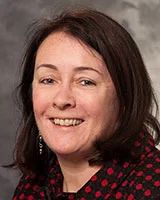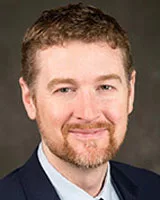Four members of the University of Wisconsin Carbone Cancer Center have been named to new leadership roles.
Ruth O’Regan, MD, has been named vice chair of the National Comprehensive Cancer Network’s (NCCN) board of directors. O’Regan, an internationally known breast cancer oncologist, heads the Division of Hematology, Medical Oncology and Palliative Care in the Department of Medicine at the UW School of Medicine and Public Health.
O’Regan, the associate director of clinical research at UW Carbone, was announced as NCCN vice chair at the NCCN’s annual meeting in March. She will serve a three-year term as vice chair, and eventually become chair of the group, an alliance of 28 leading cancer centers dedicated to improving the quality and effectiveness of care provided to patients with cancer.

“Working closely with NCCN gives me opportunities to further impact cancer care by helping the organization to share reliable information that keeps clinicians everywhere up-to-date on the latest life-saving research,” O’Regan said. “The NCCN Guidelines are the most frequently-updated medical guidelines in any medical discipline, and they’re all available for free online. I look forward to helping NCCN continue to enhance everything they have to offer the oncology community.”
O’Regan also serves as chief scientific officer of the Big Ten Cancer Research Consortium and president of the Wisconsin Association of Hematology and Oncology.
Kalejta, Kwekkeboom, Lang named co-leaders of scientific programs

Robert F. Kalejta, PhD, will serve as co-leader of the Human Cancer Virology Program. His research focuses on determining the mechanisms of human cytomegalovirus (HCMV) replication and pathogenesis, as well as using the virus as a tool to probe the pathways that lead to cell cycle progression and oncogenesis. Kalejta holds three R01s related to his work with HCMV and is the vice chair of the Institute for Molecular Virology (IMV) and an assistant director of the McArdle Laboratory for Cancer Research. He joins Shannon C. Kenney, MD, as co-leader.
Kristine Kwekkeboom, PhD, was named co-leader of the Cancer Prevention and Control Program. Her research focuses on pain and symptom management in persons with cancer, including an R01-funded study in patient-controlled interventions for symptom clusters in advanced cancer. Kwekkeboom also mentors students developing science in the areas of coping with cancer and treatment, cancer symptom management, quality of life, and self-management of pain in various health conditions.

She is on the faculty of the UW–Madison School of Nursing, a standing member of the National Institute for Nursing Research initial Scientific Review Group and a fellow of the American Academy of Nursing. She joins Nihal Ahmad, PhD, as co-leader.
Joshua Lang, MD, was named co-leader of the Tumor Microenvironment Program. His research focuses on biomarker development in prostate cancer for the clinical translation of targeted therapies. This work has extended into translational clinical trials evaluating how the tumor microenvironment promotes treatment resistance in multi-focal prostate cancer. He joins Pam Kreeger, PhD, as co-leader.

Lang, an associate professor of medicine, maintains extensive research partnerships, including working with Dave Beebe, PhD, to co-develop microscale platforms for the analysis of circulating tumor cells (CTCs), serving as co-investigator on the DOD Prostate Cancer Clinical Trials Consortium grant held by Glenn Liu, MD, and holding leadership roles with the UW Carbone Liquid Biospecimen Acquisition Team and Circulating Biomarker Core. Lang is currently funded by an NIH/NCI R01, two Prostate Cancer Foundation grants and multiple DOD/PCRP awards.